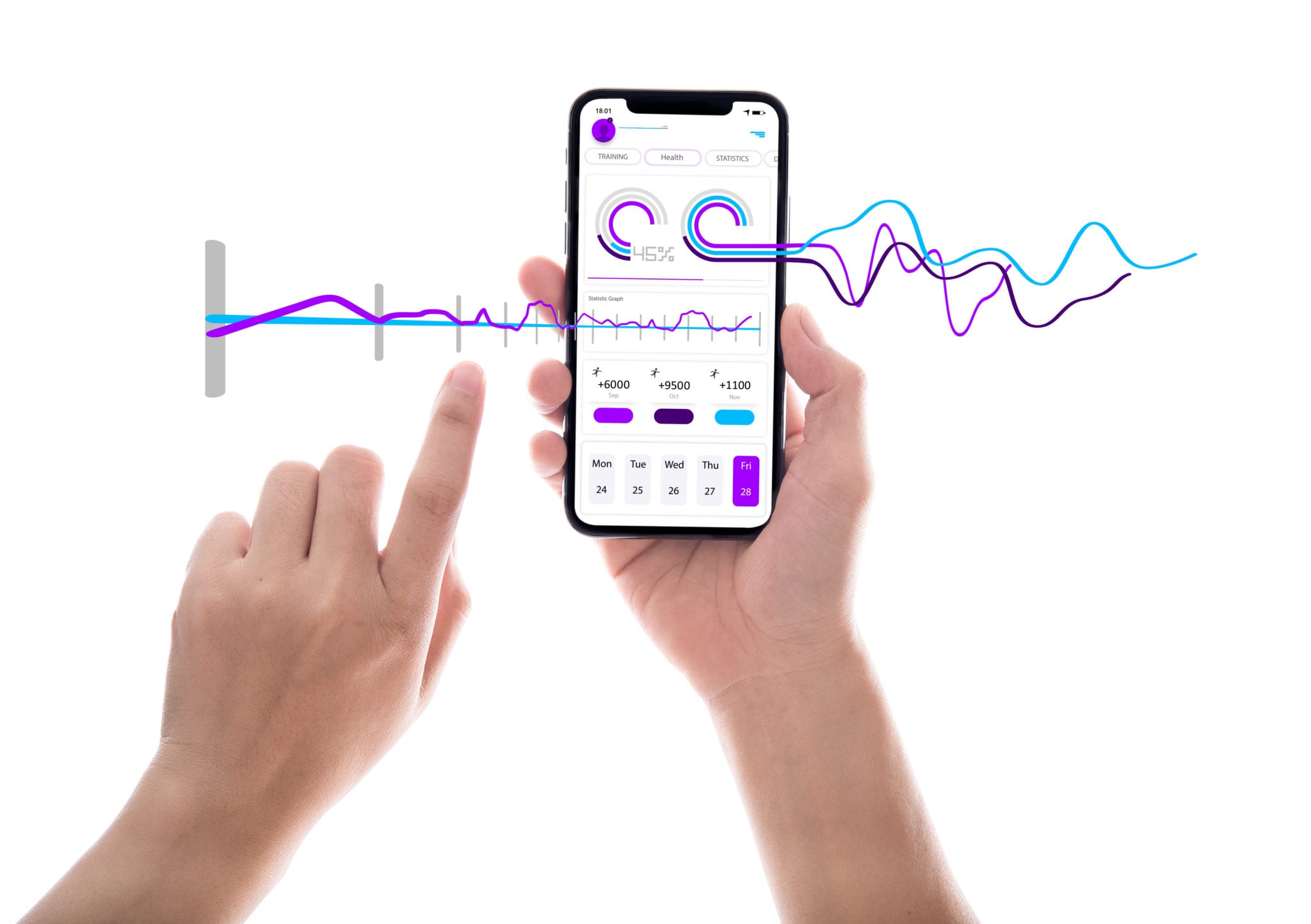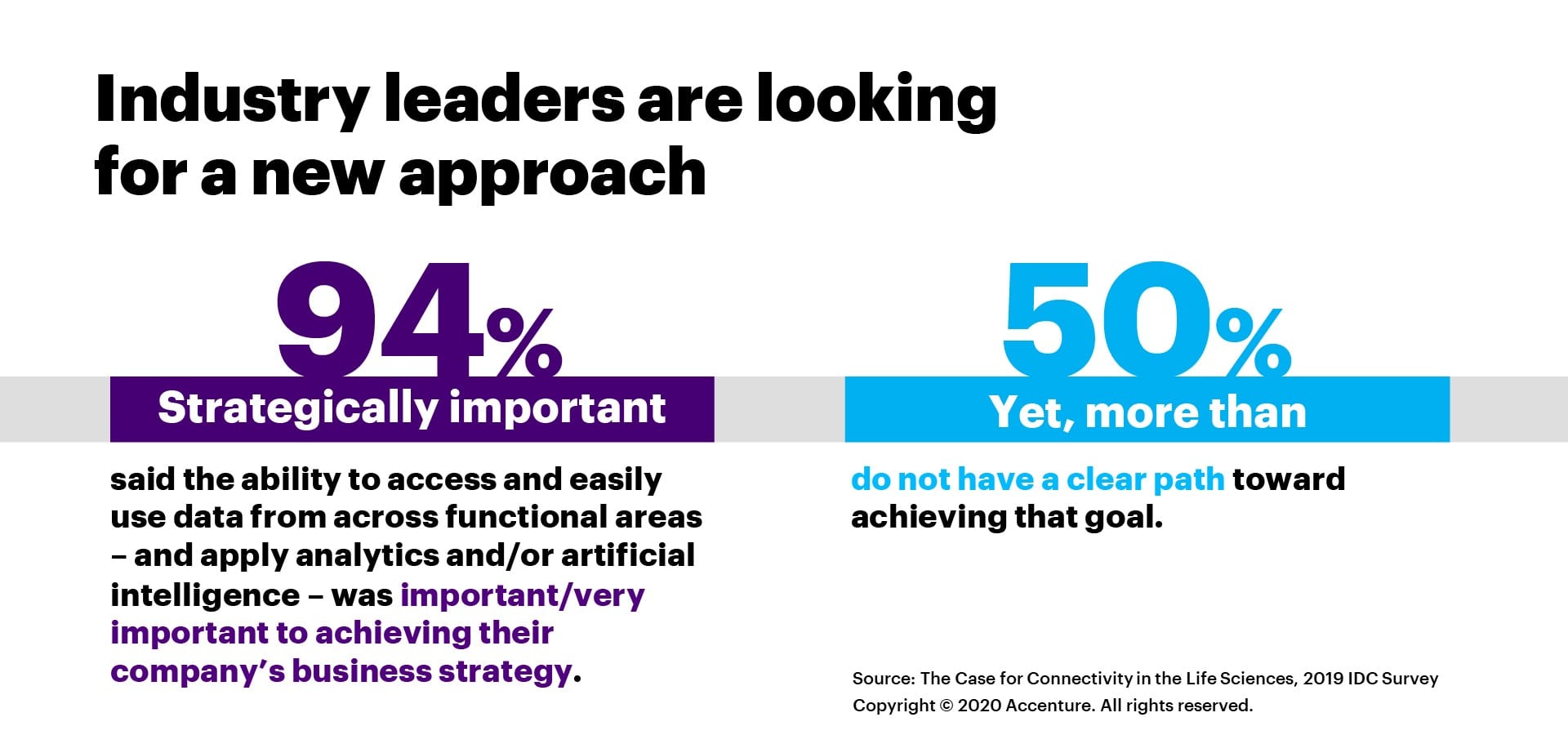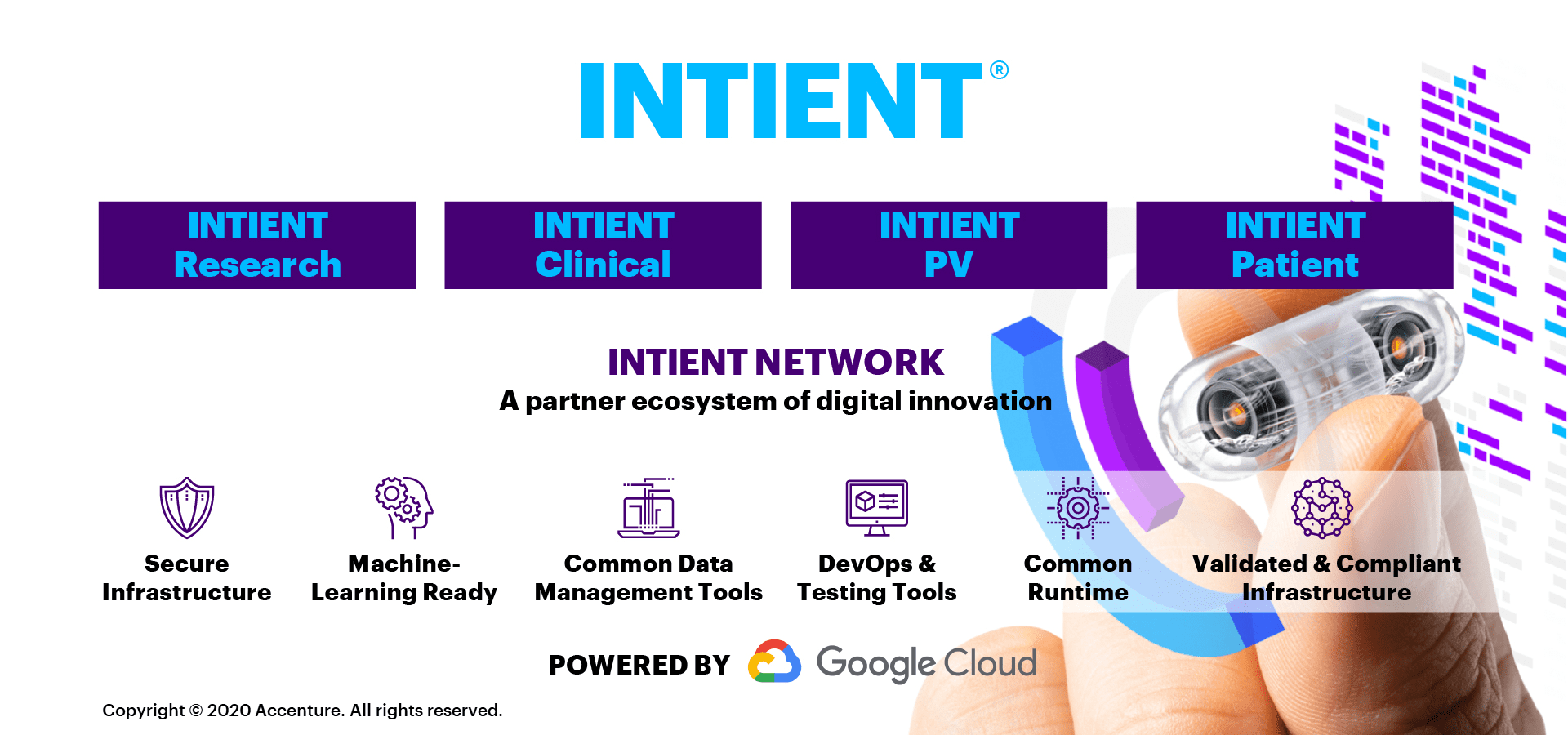
Open & Flexible Technology Can Enable Breakthrough Innovation
The boundaries of innovation in the life sciences industry are being pushed like never before, as the world races toward the development of an effective COVID-19 vaccine. At the same time, with at least 6,500 clinical trials at risk of being disrupted by the pandemic, life sciences companies are struggling to keep their current research and clinical development programs on track.
Against this backdrop, many companies are operating within a fragmented technology landscape, using multiple platforms and solutions that trap data in proprietary technology silos – slowing the ability to innovate at speed and scale. IDC, a global provider of market intelligence and advisory services, surveyed 120 pharmaceutical and biotechnology leaders and found that 94% said the ability to easily access, use and apply analytics and artificial intelligence (AI) to data from across functional areas was important to achieving their business strategy. Yet, more than 50% said they did not have a clear path toward achieving that goal. And in another recent survey, 88% of life sciences executives said that digitalization at their companies is still happening in silos.

Shifting to an open, cloud-based approach could provide the flexibility, extensibility and connectivity to make a step-level change possible in how companies digitally integrate across the enterprise. Improved access to a wide range of data would enable the application of AI and advanced analytics, delivering insights that could bring new drugs and therapies to patients faster than ever before.
Insights enabled by AI are already playing a role in speeding up drug design and development. In January, Exscientia and Sumitomo Dainippon Pharma announced that a drug molecule to treat obsessive-compulsive disorder – designed with AI algorithms – was ready for clinical trials after just 12 months in development, when a typical discovery and development phase can take 3 to 4 years.
A Platform to Enable End-to-End Connectivity
One new technology platform leverages a combination of Google Cloud’s advanced analytics and AI capabilities, together with Accenture’s life sciences services and technology expertise. Offering product suites in research, clinical, pharmacovigilance, regulatory and patient services, the INTIENT platform is designed to help life sciences organizations make their data more accessible, secure and valuable.
INTIENT also enables a new level of collaboration, unifying cross-functional teams with common data insight tools and metrics. Capabilities within the INTIENT platform’s newest release, many of which are unique to the life sciences industry, were developed in less than six months from the launch of Accenture’s partnership with Google Cloud.
Capabilities within this latest release of the Accenture INTIENT Platform include features to ensure the platform is:
- Secure & Compliant: The platform offers robust security with end-to-end encryption of data in flight and at rest, including integration with identity access management. This delivers multi-layered security to fulfil specific compliance needs for the availability, processing integrity, confidentiality, and privacy of customer data, including being compliant for HIPAA, SOC, and HITRUST, and validation ready for GxP compliance.
- AI-Ready: The INTIENT Platform gives clients access to powerful AI capabilities in an easily consumable package – providing access to world-leading tools like BERT and AutoML to support business and scientific use cases ranging from natural language processing (NLP) to intelligent cancer detection in medical images.
- Open & Scalable: The platform’s common runtime capabilities enable Google Cloud’s multi-cloud and hybrid cloud workload deployments with elastic scaling capabilities. This provides secure and flexible application programming interface (API) access to protect investments into existing software solutions and cloud platforms.
This latest platform release also introduces the INTIENT Network, a partner ecosystem that leverages the open architecture of the Google Cloud Platform. With industry-standard APIs, the network removes barriers to entry for specialty software, services, hardware, content, and business partners – enabling rapid, flexible deployment of new, innovative solutions. With INTIENT, life sciences companies can connect to small, independent vendors offering highly specific and unique solutions, along with an entire community of proven partners and providers.
In this age of New Science, solutions like INTIENT can offer an end-to-end view of data and enable state-of-the art analytics, helping the industry advance new, personalized therapeutics faster than ever before. To learn more about INTIENT, visit www.accenture.com/INTIENT.
